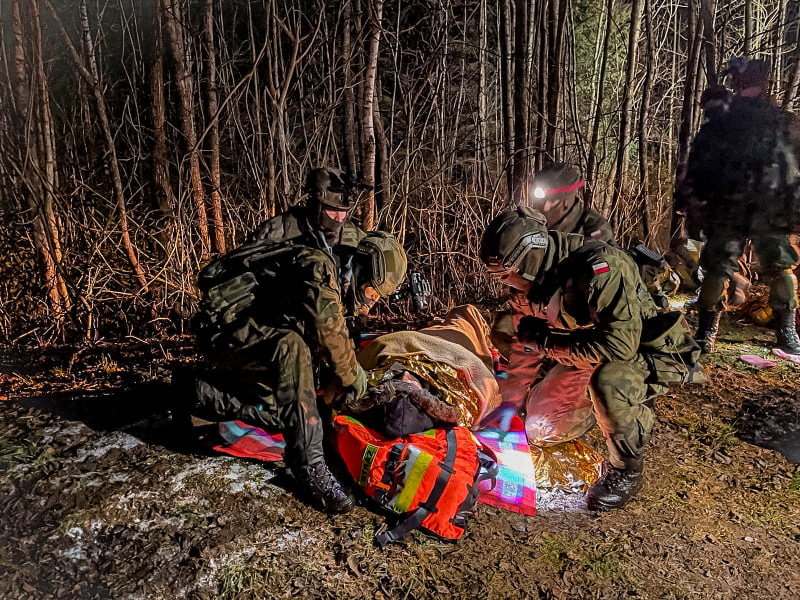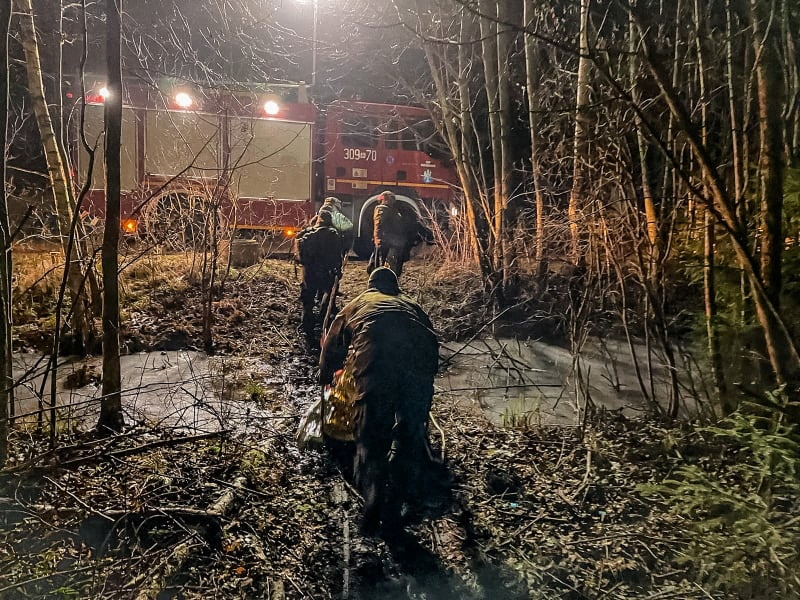WARSAW (Reuters) – Four migrants from Syria and Iraq were rescued from a swamp in Poland near the border with Belarus late on Tuesday in a life-or-death operation as bitter winter conditions set in, security services said.
While the number of migrants trying to cross into the European Union from Belarus has decreased in recent weeks, human rights activists are increasingly alarmed about the dangers facing those still attempting the crossing in sub-zero temperatures.
The European Union accuses Belarus of engineering a migrant crisis on its eastern border to hit back at sanctions, but Minsk denies this.
“They were in a place where it was hard to get to them because it was a swampy area,” said Border Guard spokeswoman Anna Michalska. “The Fire Brigade came with their special equipment and … we pulled the migrants onto dry land.”
In addition to the Fire Brigade, the Territorial Army were also involved in the rescue. The group of three men and one woman had been located by military reconnaissance drones.
“Due to the low temperatures … the rescue operation was a fight for their health and life,” the Territorial Army said in a statement, adding that the migrants were dried and wrapped in thermal blankets before being taken to hospital.
Refugee charity Ocalenie Foundation said on Tuesday they had been contacted by the migrants, who said they were in trouble, and had passed this information on to the security services.
Poland has faced criticism from human rights advocates, who say it is denying migrants their right to claim asylum by pushing them back into Belarusian territory, subjecting them to potentially fatal dangers as the temperature drops.
Poland rejects this criticism, saying the migrants are Belarus’s responsibility and that its offers of humanitarian aid have been rejected.
(Reporting by Alan Charlish and Pawel Florkiewicz; Editing by Giles Elgood)

























